I’m not going to lie: I’m really enjoying the FIFA Club World Cup. And that’s a strange thing to say considering virtually every negative thing anyone has said about the competition has been correct.
The venues have indeed been too big, making decent good crowds look paltry in cavernous environments, and one of the scourges of 21st Century business, dynamic pricing, has backfired in plenty of instances.
The European teams can claim both fatigue and rust at the same time, having taken a few weeks off after a grueling campaign before facing teams in midseason form (and fitness) from other continents. Stars like Paris Saint-Germain‘s Ousmane Dembélé and Real Madrid‘s Kylian Mbappé haven’t been involved. The heat and weather have been ridiculous, and the decision to have the most marketable European teams playing in the afternoon — prime time in Europe — in cities like Miami and Charlotte, is questionable at best.
(This says nothing of Juventus‘ White House visit, Antonio Rüdiger‘s claims of racist abuse and all the other undercurrents weighing down virtually every pastime or aspect of society at the moment.)
However, rust, weather, stadium size, world geopolitics … none of that is the fault of the South American teams that have absolutely come to play over the last couple of weeks. Or the fanbases that have followed them around this sweltering country. Or the marquee names (Manchester City‘s Erling Haaland, Inter Miami’s Lionel Messi, Bayern Munich‘s Michael Olise and Kingsley Coman, Juventus’ Randal Kolo Muani), familiar old stars (Benfica‘s Ángel Di María and Nicolás Otamendi, River Plate’s Marcos Acuña) or exciting lesser-knowns (Mamelodi Sundowns‘ Lucas Ribeiro Costa, Inter Miami’s Oscar Ustari, Botafogo’s Alexander Barboza) who have shone thus far.
We’ve seen PSG and Chelsea fall to South American counterparts (Botafogo and Flamengo). We’ve seen Inter Miami take down a team (Porto) that was in the UEFA Champions League knockout rounds last year. We’ve seen some electric environments for matches like Bayern Munich vs. Boca Juniors, and we saw nonsense of the best kind as eight goals were scored in the second half of Group A’s final two matches (three in Inter Miami vs. Palmeiras, five in Al Ahly’s 4-4 draw with Porto) and after both teetering on the brink of elimination, both Palmeiras and Inter Miami advanced.
And, we’re only getting started. As of Wednesday morning, nine of 16 spots in the knockout rounds have been secured. So, as teams continue to qualify, let’s take a look at each remaining contender and why they might or might not lift the strange, golden Club World Cup trophy in a few more weeks.
Editor’s Note: This file will be updated on Thursday and Friday as the final four groups (E, F, G and H) conclude and the remaining round of 16 teams are confirmed.
 Bayern Munich
Bayern Munich
Title odds, per ESPN BET: +550 (equivalent to 15.4%) | Title odds, per Opta: 12.0%
How they got here: def. Auckland City (10-0), def. Boca Juniors (2-1), lost to Benfica (1-0)
Round-of-16 opponent: Flamengo (June 29, 4 p.m. ET, Miami)
Why they will win it all: They take all the shots. No matter the manager, no matter the season, Bayern suffocate overwhelmed opponents. In the Champions League last season, they were second in shots per possession and first in shots allowed per possession. In the Bundesliga, they were first in both categories. They tilt the pitch, they counter-press, and they keep the ball near your goal and far away from theirs.
Three matches in, they’re doing the same thing in this competition: They’re fourth in shots per possession and first in shots allowed. Granted, they’ve benefited from playing the weakest team in the competition (Auckland City, whom they outshot, 31-1). But in more cautious and physical matches against Boca Juniors and Benfica, they still attempted twice the shots and produced more than three times the xG. They completed 351 passes in the attacking third against Boca and Benfica while allowing just 48 such completions.
Manager Vincent Kompany attempted to rest key players in scorching heat against Benfica — Harry Kane, Michael Olise, Joshua Kimmich and Jonathan Tah all only played the second half — and it backfired when they fell behind early and Benfica goalkeeper Anatolii Trubin somehow made it hold up. But when the starters are on the pitch, Bayern is playing for keeps.
Why they won’t: We don’t know that their old defensive weaknesses are fixed yet. The high-risk ball domination that Bayern enjoy usually comes with occasional defensive breakdowns. In six draws and losses in last year’s Champions League, they still dominated in shot quantity, but looking specifically at high-quality shots (worth 0.2 xG or more), they allowed as many as they attempted.
When Boca Juniors tied Bayern in the second half in Miami last Friday, it came on a counterattack that produced a particularly high-quality shot (0.53 xG). Granted, it was a brilliant individual effort from Miguel Merentiel, but it was the exact flavor of goal Bayern tend to allow.

0:34
Müller on weather at CWC: We’re professionals, no excuses
Bayern Munich’s Thomas Müller says at 36-years-old if he can play in the hot weather at the Club world Cup, then “everybody should do it.”
 Benfica
Benfica
Title odds, per ESPN BET: +3300 | Title odds, per Opta: 4.9%
How they got here: drew with Boca Juniors (2-2), def. Auckland City (6-0), def. Bayern (1-0)
Round-of-16 opponent: Chelsea (June 28, 4 p.m. ET, Charlotte)
Why they will win it all: Angel Di Maria and Nicolas Otamendi have turned back the clock. Or I should say, they’ve continued to do so. The club’s worldly 37-year-olds played all but 16 of Benfica’s minutes in the group stage. Di Maria scored three goals (tied for most in the competition as of Tuesday afternoon) and ranks first on the team in chances created, expected assists from completed passes, shots on goal and even total touches. He’s relentless. And did I mention: he’s 37.
Otamendi, meanwhile, stifled Bayern’s Harry Kane for a half and has been one of the primary reasons why Benfica enter the knockout stage having not allowed a goal for 243 minutes. He’s first on the team in defensive interventions, he’s won 81% of his duels, and oh yeah — he’s also first on the team in progressive carries and progressive passes.
Goalkeeper Anatolii Trubin has been fantastic, too, and players like attacker Vangelis Pavlidis and defensive midfielder Leandro Barreiro have been strong. But two proud old warhorses lead this proud old club into the knockouts.
Why they won’t: Their record against good teams … isn’t good. In the last 12 months, Benfica have played 10 matches against teams in the top 20 of the Opta power rankings. They lost six, drew two and won only two – and one of the two came on Tuesday against a Bayern team that tried to rest quite a few starters (and still generated far more opportunities) – with two draws and six losses. They scored more than one goal just twice. This is a nearly upset-proof outfit, but they aren’t going to be favored much, if at all, moving forward.
 Botafogo
Botafogo
Title odds, per ESPN BET: +3300 (equivalent to 2.9%) | Title odds, per Opta: 0.4%
How they got here: def. Seattle Sounders (2-1), def. PSG (1-0), lost to Atletico Madrid (0-1)
Round-of-16 opponent: Palmeiras (June 28, noon ET, Philadelphia)
Why they will win it all: They sacrifice their bodies. Botafogo’s road to the round of 16 was laborious. They attempted 23 shots to opponents’ 62. They possessed the ball just 34.8% of the time — no one else under 35% has averaged even 1.0 points per game. But Fogo averaged 2.0 points per game and became the first team to beat PSG since the Parisiens became European champions. And they did it with pure effort.
Botafogo have blocked 36% of opponents’ shots (fifth-most in the competition), and they’ve forced opponents to attempt 83% of their shots with at least two defenders between shot and goal (11th). They attempted 12.3 counters per game (11th), too, scoring the only goal of the match against PSG from a counter. Their attack is pretty one-dimensional, but Igor Jesus has been clinical: He scored the game-winner in both wins, and from shots worth a combined 0.2 xG.
They protected that lead against PSG for 54 minutes with no breakdown, and knowing they would advance as long as they didn’t lose by three goals or more against Atletico Madrid, they made Atleti work for 87 minutes to score just one. This is some high-effort, high-degree-of-difficulty stuff.
Why they won’t: The god of xG will eventually turn on you. Their goal differential: +1. Their xG differential: -4.2. They’ve allowed just two goals from shots worth 6.2 xG. They are playing inspired and intense ball, and it is a delight to watch, but … you aren’t going to win four more matches while giving opponents so many more high-quality opportunities.
 Chelsea
Chelsea

0:58
Maresca ‘proud’ of Chelsea making it to last 16 of CWC
Enzo Maresca speaks on Chelsea making it to the last 16 of the Club World Cup, as well as how Liam Delap has settled into the Chelsea squad.
Title odds, per ESPN BET: +1200 (equivalent to 7.7%) | Title odds, per Opta: 11.0%
How they got here: def. LAFC (2-0), lost to Flamengo (1-3), def. Esperance (3-0)
Round-of-16 opponent: Benfica (June 28, 4 p.m. ET, Charlotte)
Why they will win it all: Depth and a strong possession game. Manager Enzo Maresca is used to dealing with a bloated squad and in this tournament, with its oppressive weather, bloat is a good thing. He’s already played 25 different guys, with only right back Malo Gusto topping 195 minutes (star Cole Palmer has only had to play 166). And despite the heavy rotation, Chelsea looked strong for basically five of six halves. They wilted late against Flamengo, but responded to qualify easily.
No matter who’s been playing, Chelsea have checked all the proper possession boxes: They’re sixth in possession rate (63.0%), sixth in passes per possession (9.2), fourth in progressive carries (90.3 per game) and fourth in offsides drawn (3.0 per game), and all with the third-fewest possessions per game (69.0). They’ll have to beat Benfica without the suspended Nicolas Jackson, which isn’t optimal, but this is a relatively rested team playing the type of ball it wants to play.
Why they won’t: Cole Palmer is the wrong kind of cold (and the glitches remain alarming). You probably need your best player to play well to win four knockout rounds, and Palmer has been an absolute non-factor in his two appearances thus far. In fact, going all the way back to Jan. 20, he’s played in 26 matches for club and country and has managed just one goal with five assists. Two of those assists did come in the Conference League final against Real Betis, but he’s attempted 75 shots worth 7.6 xG in this lengthy span and put just one in the net. That’s five steps beyond “finishing funk.”
Add Palmer’s struggles to a defense that glitched out for a bit against Flamengo (and had a pretty bad habit of allowing high-quality shot attempts while nursing leads in the Premier League), and you don’t have the most stable of contenders.
 Flamengo
Flamengo
Title odds, per ESPN BET: +2200 (equivalent to 4.3%) | Title odds, per Opta: 0.3%
How they got here: def. Esperance (2-0), def. Chelsea (3-1), drew with LAFC (1-1)
Round-of-16 opponent: Bayern Munich (June 29, 4 p.m. ET, Miami)
Why they will win it all: They take all the good shots. Before manager Filipe Luís flipped their lineup quite a bit for their final match, having already clinched first in Group D, Flamengo allowed one goal in two matches, and it was triggered by a series of funky deflections. Meanwhile, they attempted seven shots worth at least 0.2 xG and allowed one. It’s hard to lose when you’re taking all the good shots.
Brazilian teams have been excellent in this competition, and Flamengo are Brazil‘s best team. They play the sturdy, box-filling defense we’ve seen from most of the South American teams in the Club World Cup, but they don’t spring forward into counterattacks — instead, they play sound, patient possession ball. They keep the tempo ultra-slow, and they whittle away until they create something of high quality.
Leo Pereira leads a great defense, Giorgian de Arrascaeta (nine goals and four assists in nine Serie A matches) and Gonzalo Plata (two assists versus Chelsea) trigger a diverse attack, and now former Chelsea and Arsenal star midfielder Jorginho is linking the two together.
Why they won’t: A slow game doesn’t work as well if you’re trailing. Granted, they charged back from a 1-0 deficit to wallop Chelsea, but if they are to make a deep run in this tournament, they are only going to face better and better opponents, and they’ll probably have to come from behind again. That’s theoretically a lot harder to do when you play at such a languid pace and your entire game is based around patience. They’ve trailed for only 48 possessions in league play this season, too — we don’t really know how good their Plan B is because they’ve never had to show it.
 Inter Miami
Inter Miami
Title odds, per ESPN BET: +5000 (equivalent to 2.0%) | Title odds, per Opta: 0.4%
How they got here: drew with Al Ahly (0-0), def. Porto (2-1), drew with Palmeiras (2-2)
Round-of-16 opponent: Paris Saint-Germain (June 29, noon ET, Atlanta)
Why they will win it all: Messi magic. As of Tuesday, there have been four goals from direct free kicks in the Club World Cup. They had an average pre-shot xG of about 0.07. But Leo Messi’s, from 23 meters out in the second half against Porto, felt like 1.00. The crowd buzzed as Messi was lining it up. Everyone expected it to go in, and then it went in.
EMBED: https://youtube.com/shorts/MCwgW04KWXs?si=sbqvrg9jskRLczIM
Per the Opta power rankings, Inter Miami was the No. 4 team in Group A heading into the tournament, and it appeared that a Messi team was primed to exit a tournament in the group stage for the first time ever. But his free kick teed up an upset of Porto, and his work further from the goal against Palmeiras — he made 12 progressive carries, won five of seven 1v1s and altered the defense’s center of gravity for 90 minutes. Inter overcame a rampant run of cramping to draw with Palmeiras and advance.
Beating PSG is probably too much to ask, but all it might take is a couple of moments of magic from a guy still capable of generating them.
Why they won’t: Okay, fine, beating PSG is almost definitely too much to ask. It will take the aforementioned magic, plus further strain from a defense that has maxed itself out in terms of both skill and effort levels. Opta’s power rankings give Inter only a 16.4% chance of advancing and even in a game based so heavily in randomness, that feels incredibly optimistic.

0:31
Inter Miami fans celebrate progression to Club World Cup knockouts
Inter Miami fans celebrate after their draw with Palmeiras to progress to the Club World Cup knockouts.
 Juventus
Juventus
Title odds, per ESPN BET: +1800 (equivalent to 5.3%) | Title odds, per Opta: 4.6%
How they got here: def. Al-Ain (5-0), def. Wydad Casablanca (4-1)
Round-of-16 opponent: Someone from Group H (either Real Madrid, RB Salzburg or Al Hilal, location and time TBD)
Why they will win it all: They’re hustling. Igor Tudor took over as manager on March 23 and safely steered Juve to a fourth-place finish with just one loss in nine league matches. They created a forcefield around their defensive box and hustled their butts off, allowing few passes per defensive action, blocking tons of shots and making most of the ball recoveries.
Juve are hustling said butts off appropriately in the U.S., too. Even while nursing mostly comfortable leads that would theoretically allow them to ease off the throttle, they’re third in passes allowed per defensive action (8.5) and sixth in ball recoveries per match (44.0). They did allow a goal from a careless breakdown against Wydad Casablanca, but it’s almost the only breakdown they’ve suffered. Meanwhile, the attacking trio of Randal Kolo Muani, Kenan Yildiz and Francisco Conceição (combined: seven goals, one assist, 10 chances created) has been incredibly sharp.
Juve appear to be taking this competition very seriously.
Why they won’t: Hustling isn’t enough against good teams. In Tudor’s nine league matches, Juve played three solid teams (Bologna, Lazio and Roma) and drew 1-1 with all three. Combined xG differential in those three matches: minus-0.8. In attack, they couldn’t count on either dangerous counters or sturdy buildup play, and they got pinned in a bit more defensively. They weren’t dominated by any means, but they didn’t create many advantages.
Starting with Thursday’s match against Manchester City, the competition ramps up significantly for Juve. High effort levels have made them just about upset-proof, but they aren’t going to be favored in many matches moving forward.

2:40
Has the stock of MLS improved since the Club World Cup?
Gab Marcotti and Herculez Gomez debate whether the Club World Cup has changed the view on MLS.
 Manchester City
Manchester City
Title odds, per ESPN BET: +450 (equivalent to 18.2%) | Title odds, per Opta: 18.6%
How they got here: def. Wydad Casablanca (2-0), def. Al-Ain (6-0)
Round-of-16 opponent: Someone from Group H (either Real Madrid, RB Salzburg or Al Hilal)
Why they will win it all: They’re Manchester City. While the qualification criteria for this competition was rather murky, the general idea is that the teams in this tournament accomplished something particularly noteworthy between 2021-24. City were the best team in the world for a large percentage of that span. They only finished third in the Premier League and reached the FA Cup final this year, which by City standards was apocalyptic, but both the ceiling and floor remain ridiculously high.
In two Club World Cup matches, Pep Guardiola has played 25 different guys and gotten goals from seven different players, and City are dominating possession, tilting the pitch and doing all the things we expect City to do.
Why they won’t: We don’t know what we need to know about the defense yet. Out of 36 Champions League teams this past season, City ranked 32nd in shots allowed per possession (0.15), 32nd in ball recoveries per game (37.9) and 36th in duel attempts; the attack was fine and hogged the ball as well as expected, but without a healthy Rodri, the back half of the City lineup was terribly passive.
Three January defensive acquisitions (defensive midfielder Nico Gonzalez, right back Abdukodir Khusanov and center-back Vitor Reis) and a June acquisition (left back Rayan Aït-Nouri) are among the many guys who have seen the pitch — as is Rodri himself — but Guardiola is still experimenting, and the level of competition is about to ramp up quickly. They haven’t allowed a goal yet, but Wydad Casablanca managed 12 shot attempts, and while Al-Ain managed only five, three were worth at least 0.1 xG. Results are inconclusive thus far.
 Palmeiras
Palmeiras
Title odds, per ESPN BET: +2000 (equivalent to 4.8%) | Title odds, per Opta: 0.9%
How they got here: drew with Porto (0-0), def. Al Ahly (2-0), drew with Inter Miami (2-2)
Round-of-16 opponent: Botafogo (June 28, noon ET, Philadelphia)
Why they will win it all: They wear opponents down. Winners of 11 trophies in the 2020s, Palmeiras nearly took down Chelsea in the 2021 Club World Cup final. Despite sending loads of high-level talent to Europe in that span, no Brazilian team feels more at home on a big, pressure-packed stage, and they showed it by winning Group A with a run of second-half brilliance.
This is a pretty retrograde attack: Palmeiras are third in the competition in cross attempts (29.0 per match), second in percentage of shots from headers (28.0%) and fourth in direct attacks (sequences starting in the defensive half and producing a shot within 20 seconds). But they’re still attempting more shots per possession than anyone not named Bayern (0.22), and they’re allowing just 0.09 per possession (eighth). In sticky, hot conditions, they keep the game wide open and wait for you to wilt. It’s working.
Why they won’t: Shot quality. Attempting almost 2.5 times more shots than your opponent will generally work out pretty well for you, but only eight of their 50 shot attempts have been worth 0.2 xG or more, and they’re 20th in the competition in xG per shot (0.14). After blowing a couple of golden opportunities in the opener against Porto, Chelsea-bound Estevao’s shot quality has regressed quickly, and Palmeiras have turned shots worth 5.3 xG into only three goals. (They scored a fourth on an own goal.)
If you aren’t taking great shots and aren’t maximizing the ones you take, you aren’t winning four knockout-round matches.

2:52
Could the heat of a U.S. summer spoil the World Cup in 2026?
Gab Marcotti and Craig Burley explain the struggle to balance making Club World Cup games available for the global audience with making it safe for the players.
 Paris Saint-Germain
Paris Saint-Germain
Title odds, per ESPN BET: +275 (equivalent to 26.7%) | Title odds, per Opta: 21.1%
How they got here: def. Atletico Madrid (4-0), lost to Botafogo (1-0), def. Seattle Sounders (2-0)
Round-of-16 opponent: Inter Miami (June 29, noon ET, Atlanta)
Why they will win it all: They’re the best team in the world. They were placed in a challenging group, Ballon d’Or contender Ousmane Dembele is nursing a hamstring issue, and neither Désiré Doué nor Bradley Barcola have accomplished much so far. And yet, this deep and energetic team is doing all the things a brilliant Luis Enrique squad is supposed to do — 73.4% possession rate (first in the competition), 11.3 passes per possession (first), 104.3 progressive passes per game (first) and, on the pressing side, just 6.9 passes allowed per defensive action (first).
They still have the best fullback duo in the game with Achraf Hakimi and Nuno Mendes, Khvicha Kvaratskhelia remains a nonstop menace on the left wing, Fabián Ruiz and Vitinha have been almost flawless in midfield, and six different players have put the ball in the net. Even with the loss to Botafogo, the best team in the world for the last six months has made it to the knockout rounds with minimal stress.
Why they won’t: They need to dial back in. The blowout win over Atletico Madrid was a statement of intent to open their tournament, but their focus has waned since then.
They indeed gave up a counterattacking goal to Botafogo and never created a particularly high-quality opportunity in the hour that followed. And in what turned out to be a must-win match against Seattle, they were slow out of the gate, allowing a high-quality opportunity to Jesús Ferreira in the 19th minute and actually losing the first-half xG battle. They dominated the second half and were never in trouble, but after that fifth-gear showing they’ve cruised along in second, and it can be difficult to re-establish your best form once you’ve lost it.


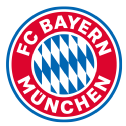 Bayern Munich
Bayern Munich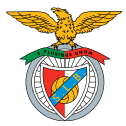 Benfica
Benfica Botafogo
Botafogo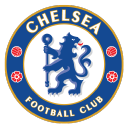 Chelsea
Chelsea Flamengo
Flamengo Inter Miami
Inter Miami Juventus
Juventus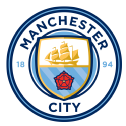 Manchester City
Manchester City Palmeiras
Palmeiras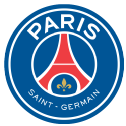 Paris Saint-Germain
Paris Saint-Germain